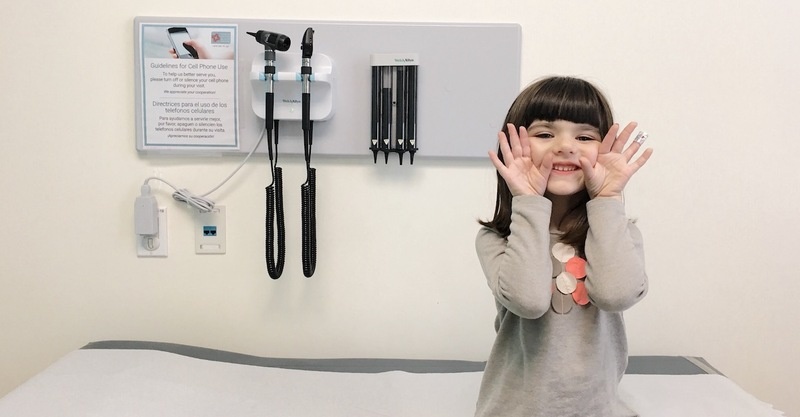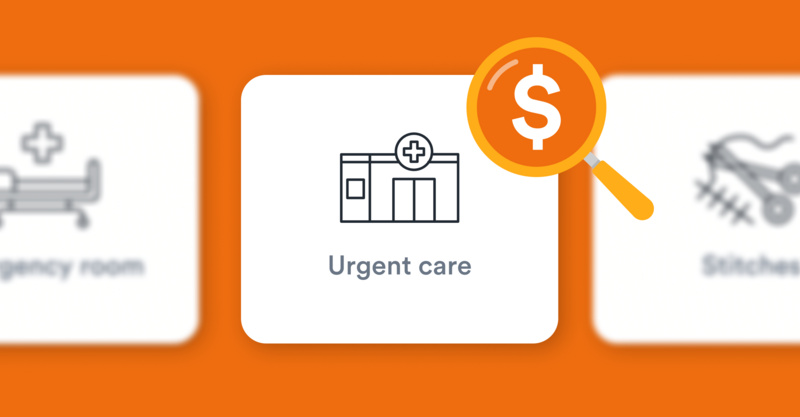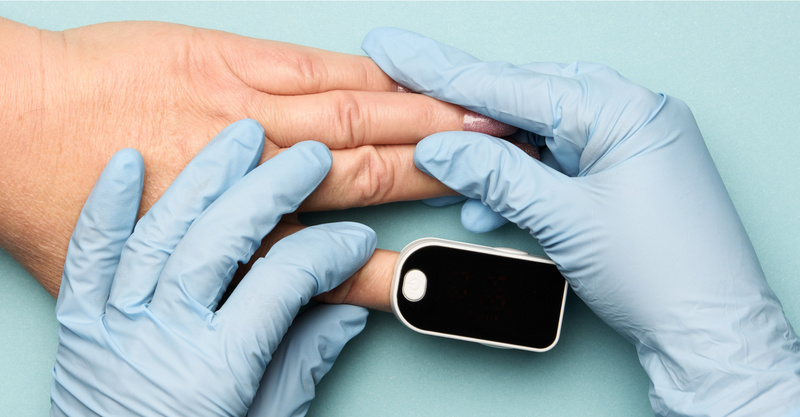Key Points
- Most insurance plans cover urgent care visits, but coverage specifics depend on the plan and the chosen urgent care center. Familiarity with insurance terms like premiums, copays, and deductibles is essential.
- Urgent care is generally more cost-effective than emergency rooms, with ER visits costing significantly more due to their capability to handle severe emergencies.
- Before visiting, it's crucial to check if the urgent care accepts your insurance, understand potential out-of-pocket expenses, and always bring your insurance card. Some clinics might require upfront payment or even deny treatment for non-payment.
Illness and injuries happen unexpectedly—often causing you to need medical care on short notice. When you’re dealing with a sudden need for medical care, going to urgent care is a great way to avoid the high costs of an emergency room and long wait times for an appointment with your primary care physician.
Before you head out to urgent care, you might be wondering if your insurance will cover your visit. The good news is that most insurance plans do offer coverage for urgent care visits. However, it will depend on your specific plan and the urgent care you visit.
Below you’ll find a comprehensive guide to assist in understanding when your insurance will cover urgent care and how much you can expect in out-of-pocket fees.
What is Urgent Care Good For?
Urgent care centers provide convenient access to medical services for non-life-threatening health issues that need prompt attention, according to UChicago Medicine. They explain that these facilities are ideal for situations that are not severe enough to require a visit to the emergency room but still require quicker attention than a primary care appointment might offer. With extended hours and no need for an appointment, urgent care centers can be a suitable option for those who are dealing with health issues that arise suddenly or outside of regular office hours.
Common reasons to go to urgent care, according to UChicago Medicine, include:
-
Cold, Flu, and Sore Throat: For rapid diagnosis and treatment of common respiratory illnesses.
-
Sinus Infections: When symptoms like facial pain and nasal congestion require medical intervention.
-
Asthma: Mild to moderate exacerbations that can be managed without hospitalization.
-
Vomiting and Nausea: When symptoms are persistent and cannot be managed at home.
-
Cuts and Bruises: Especially those that may need stitches or professional cleaning to prevent infection.
-
Ear Infections: To alleviate pain and obtain necessary prescriptions for antibiotics if needed.
-
Eye Infections: For red eye, pink eye, or eye irritation that needs medical evaluation.
-
Rashes and Burns: When skin issues or minor burns need professional care.
-
Fever: Especially in children or when accompanied by other symptoms that suggest a more serious infection.
-
Nasal Congestion: Persistent congestion that may be a sign of an infection or allergic reaction.
-
Pneumonia: Mild cases that can be managed on an outpatient basis.
-
STD Testing: Most urgent care clinics offer STD testing and treatment.
Urgent care centers bridge the gap between primary care and emergency rooms, offering a middle ground for timely medical care without the long wait times and high costs often associated with hospital ER visits.
When Does Insurance Cover Urgent Care
According to the Affordable Care Act (ACA), emergency care is one of the required essential health benefits for all long-term health insurance. However, not all insurance companies view urgent care visits as emergency care.
Because insurance providers have specific provider networks, you might find that some urgent care centers are within the network and others are not. Going to a clinic that’s within the insurance plan’s network is a vital way to ensure you get the coverage you need.
How Urgent Care Clinics Work With Insurance Companies
Each insurance provider determines if it covers urgent care centers or not. In many cases, insurance providers will cover urgent care, but patients will be expected to pay a co-payment or co-insurance. In some rare cases, an urgent care clinic may not accept your insurance, even if your insurance provider would otherwise pay for the care.
Because of this, it is always best to call ahead and check to see if your urgent care clinic accepts your insurance, and to be aware of your out-of-pocket expenses when it comes to urgent care.
Is Urgent Care Considered an Emergency Room for Insurance?
In general, emergency room visits are more expensive than urgent care visits. In fact, an NIH study in Texas showed emergency room costs over $2,000 per visit, while urgent care was only around $165 per visit.
This is because emergency rooms are equipped to handle severe medical emergencies and thus, they have more advanced medical equipment and resources available. As a result, insurance plans may have higher co-pays or deductibles for emergency room visits when compared to urgent care visits.
Finding an Urgent Care Center That Accepts Your Out-Of-State Insurance
If you’re traveling, you should check with your insurance provider before you go. They can explain your out-of-state coverage and even help you find providers who are along your route or at your destination that accept your insurance. Don’t forget to also bring your insurance card and prescription card (if you have one) along with you.
Can Urgent Care Deny You Treatment for Non-Payment?
When you visit an urgent care clinic, you may be asked to pay your copay upfront. Some urgent care clinics may require you to pay the full price of the visit if you do not have insurance or if they don’t accept your insurance.
According to Debt.org, some urgent care clinics can turn you away if you are unable to pay. Keep in mind that most urgent care clinics accept cash or credit cards. Some clinics may also offer payment plans or financial assistance programs for patients who can't afford to pay their bills in full.
What to Expect During an Urgent Care Visit
When you arrive at urgent care, you will first check in at the registration desk. Here you will provide your personal information, insurance information, and a brief detail of why you need to get medical care. During this process, you may be asked to pay your copay or the price of your visit if your deductible hasn’t been met yet.
Some urgent care clinics have a triage area. Once you are checked in, a triage nurse will quickly evaluate you and decide how your condition ranks compared to others who need care. For example, if you have a minor illness and someone else has more severe symptoms, they will likely be seen sooner than you.
Either in triage or when you see your provider, you will need to give a more detailed description of your medical history and current symptoms. You will also need to provide a list of medications that you currently take—including any supplements and vitamins.
During your visit, a medical provider will examine you and may order diagnostic testing if needed. Depending on your condition, you may be prescribed medication (such as antibiotics) or you may be referred to a specialist for further treatment. The length of your visit will depend on the severity of your condition and the type of treatment you require.
How Much Does Urgent Care Cost With Insurance
The cost of visiting an urgent care center with insurance can vary widely based on several factors, including the specifics of the patient's health insurance plan, the services provided during the visit, and the urgent care center's policies.
According to Forbes, patients with insurance will usually pay a copayment, which is a set fee determined by the insurance plan for services like urgent care visits. This copayment can range from $25 to $75 or more, but it's generally lower than the copay for an emergency room visit. Additionally, if you haven’t met your annual deductible, you may be responsible for the full cost of the visit or a larger portion of it until the deductible is met. After the deductible is met, the insurance plan may cover a significant percentage of the costs, with the patient responsible for any coinsurance, which is a percentage of the total bill.
Recap: Going to Urgent Care With Insurance
There are some key things to remember when you are going to urgent care as an insured person.
-
First, you should be aware of which urgent care clinics accept your insurance, and what your copays and deductibles are.
-
Come prepared to pay your copay or the total cost of your visit if your urgent care doesn’t accept your insurance or if your deductible isn’t met.
-
Bring your insurance card and identification card with you when you go to urgent care.
Now all you need to do is find urgent care clinics near you! We can help—start your search with Solv.
Frequently asked questions
Does insurance cover urgent care visits?
Yes, most insurance plans do offer coverage for urgent care visits. However, the coverage will depend on your specific plan and the urgent care you visit.
What are premiums, copays, and deductibles in health insurance?
A premium is the monthly cost of staying enrolled in an insurance plan. A copay is a fixed amount that you pay for a medical service, such as an urgent care visit. A deductible is the amount you pay before your insurance starts covering costs.
What are the different types of insurance coverage?
Different types of insurance coverage include Health Maintenance Organizations (HMOs), Preferred Provider Organizations (PPOs), Point of Service Plan (POS), Medicare, Medicaid, High Deductible Health Plan (HDHP), and Exclusive Provider Organization (EPO).
How do urgent care clinics work with insurance companies?
Each insurance provider determines if it covers urgent care centers or not. In many cases, insurance providers will cover urgent care, but patients will be expected to pay a co-payment or co-insurance.
Is urgent care more expensive than the emergency room?
No, in general, emergency room visits are more expensive than urgent care visits because emergency rooms are equipped to handle severe medical emergencies and thus, they have more advanced medical equipment and resources available.
Can I go to urgent care with out-of-state insurance?
Yes, some insurance plans cover services in other states. However, you should check with your insurance provider before you go. They can explain your out-of-state coverage and even help you find providers who are along your route or at your destination that accept your insurance.
What happens if I go to urgent care without my insurance card?
If you find yourself going to urgent care without your insurance card, you can check for your insurance information by logging into your online portal through your insurance’s website. If you are unable to find your information through an online portal, you can call your insurance provider and get the information from them over the phone.
Can urgent care deny treatment for non-payment?
Yes, some urgent care clinics can turn you away if you are unable to pay. However, most urgent care clinics accept cash or credit cards. Some clinics may also offer payment plans or financial assistance programs for patients who can't afford to pay their bills in full.
Solv has strict sourcing guidelines and relies on peer-reviewed studies, academic research institutions, and medical associations. We avoid using tertiary references.


 LinkedIn
LinkedIn










